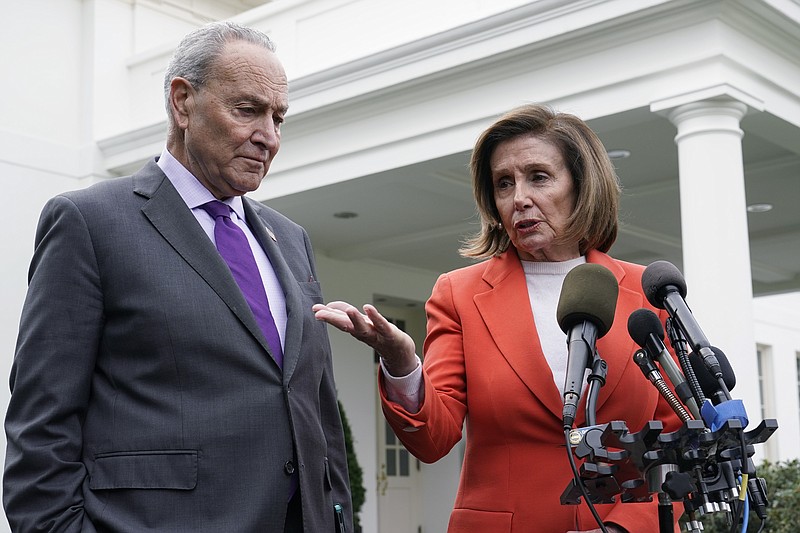By KEVIN FREKING and JOSH FUNK
Associated Press
WASHINGTON (AP) -- The U.S. House moved urgently to head off the looming nationwide rail strike on Wednesday, passing a bill that would bind companies and workers to a proposed settlement that was reached in September but rejected by some of the 12 unions involved.
The measure passed by a vote of 290-137 and now heads to the Senate. If approved there, it will be signed by President Joe Biden, who urged the Senate to act swiftly.
"Without the certainty of a final vote to avoid a shutdown this week, railroads will begin to halt the movement of critical materials like chemicals to clean our drinking water as soon as this weekend," Biden said. "Let me say that again: without action this week, disruptions to our auto supply chains, our ability to move food to tables, and our ability to remove hazardous waste from gasoline refineries will begin."
Business groups including the U.S. Chamber of Commerce and the American Farm Bureau Federation have warned that halting rail service would cause a $2 billion per day hit to the economy.
The bill would impose a compromise labor agreement brokered by the Biden administration that was ultimately voted down by four of the 12 unions representing more than 100,000 employees at large freight rail carriers. The unions have threatened to strike if an agreement can't be reached before a Dec. 9 deadline.
Lawmakers from both parties expressed reservations about overriding the negotiations. And the intervention was particularly difficult for Democratic lawmakers who have traditionally sought to align themselves with the politically powerful labor unions that criticized Biden's move to intervene in the contract dispute and block a strike.
House Speaker Nancy Pelosi responded to that concern by adding a second vote Wednesday that would add seven days of paid sick leave per year for rail workers covered under the agreement. However, it will take effect only if the Senate goes along and passes both measures. The House passed the sick leave measure as well, but by a much narrower margin, 221-207, as Republicans overwhelmingly opposed it, indicating that prospects for passage of that add-on are slim in the evenly divided Senate.
The call for more paid sick leave was a major sticking point in the talks. The railroads say the unions have agreed in negotiations over the decades to forgo paid sick time in favor of higher wages and strong short-term disability benefits.
The unions maintain that railroads can easily afford to add paid sick time at a time when they are recording record profits. Several of the big railroads involved in these contract talks reported more than $1 billion profit in the third quarter.
"Quite frankly, the fact that paid leave is not part of the final agreement between railroads and labor is, in my opinion, obscene," said Rep. Jim McGovern, D-Mass. "It should be there and I hope it will be there at the end of this process."
Most rail workers don't receive any paid sick time but they do have short-term disability benefits that kick in after as little as four days and can replace some of their income for a year or more. Rail workers do receive vacation and personal leave days, but workers say it's difficult to use those for illnesses because they must typically be approved far ahead of time.
Republicans criticized Pelosi's decision to add the sick leave bill to the mix. They said the Biden administration's own special board of arbitrators recommended higher wages to compensate the unions for not including sick time in its recommendations.
Pelosi sought to position Democrats and the Biden administration as defenders of unions and slammed the rail companies, saying they've slashed jobs, increased worker hours and cut corners on safety. But she said Congress needed to intervene.
"Families wouldn't be able to buy groceries or life-saving medications because it would be even more expensive and perishable goods would spoil before reaching shelves," Pelosi said.
